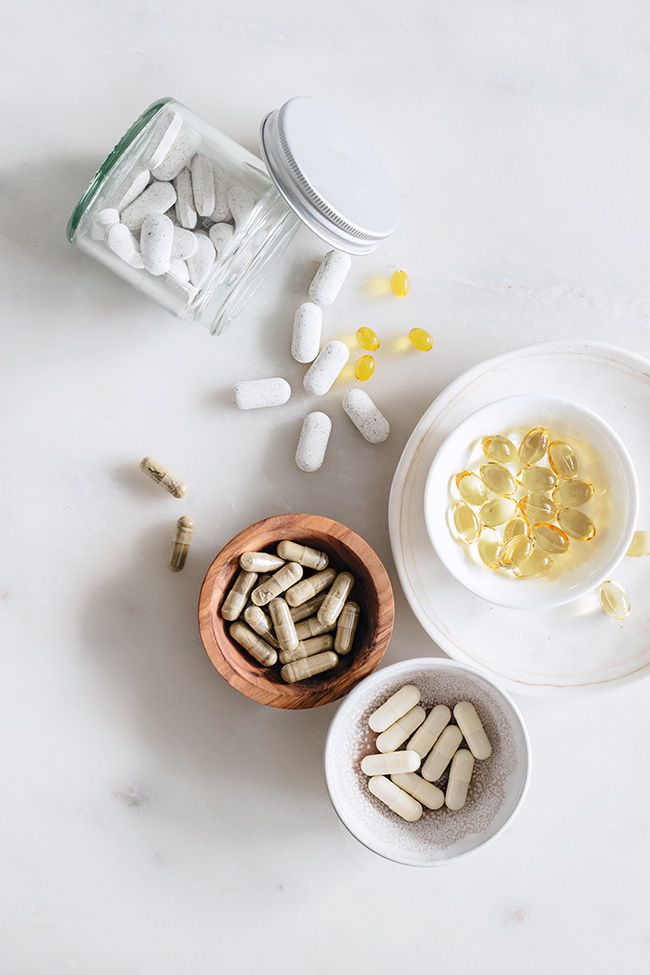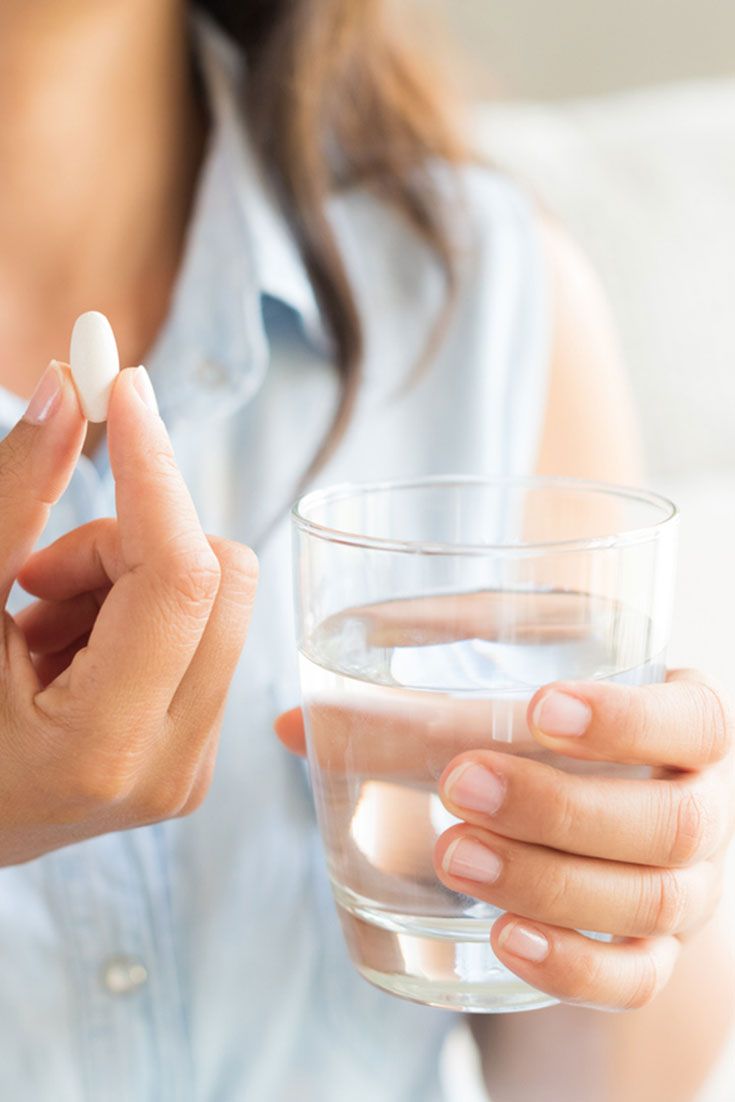Beauty...

By Hilary Sheinbaum
Walking down the supplement aisle of a drug store can be an overwhelming experience, especially if you aren’t 100 percent sure what to look for. Colorful bottles, fine print, and a range of vitamins and minerals might inspire you to rapidly Google ingredients or, alternatively, head for the door (no judgment either way!).
But, while we have your attention — as you scan rows of products in-person or online — know that your query is a popular one and a necessary one at that.
As we age, everything changes, including our cells, our bodies and our lifestyles. And as we approach new decades and milestones in our lives, sometimes we need something extra to not only feel and look our best but most importantly: maintain good health.
To cut through the noise (or at least beeline to checkout), we asked doctors, nutrition gurus and other medical experts about what vitamins and minerals women should be taking in their 20s, 30s, 40s and 50s, for optimal health. Here’s what the professionals had to say about the benefits, recommended quantities and other important information to consider when incorporating organic substances and ingredients into your diet.
As always, for good measure and specialized care, speak with your doctor before trying something new or altering products in your regimen.
Iron might sound familiar from a nutrition label, and for good reason. It has an impact on the maintenance of healthy skin, hair and nails, and more vitally: immunity and brain function.
“Iron is a mineral vital to the proper function of hemoglobin, a protein found in your blood that transports oxygen throughout the body,” says Dr. Jodie Horton, OB/GYN and Chief Wellness Advisor for Love Wellness. Without healthy red blood cells, the body can’t get enough oxygen to vital parts, which will leave you feeling fatigued.
Dr. Horton recommends 18mg of iron every day or 27mg if you are pregnant (as severe iron deficiency may increase a baby’s risk of being born too early or smaller than normal).
Instead of sitting in the sun and risking a burn: it’s important to start taking Vitamin D at 30 years old to maintain bone health, according to Dr. Lilya Horowitz, a dentist at Domino Dental in Brooklyn, New York. She notes that if you eat a plant-based diet, supplementing with Vitamin D can help preserve and protect your bones. These nutrients also keep your teeth and muscles strong.
She adds that collagen supplements become more essential with each passing decade and should also be started at 30 years old to help maintain joints and ligaments. “As we get older our joints start to deteriorate including the joint in the head, TMJ, the temporomandibular joint that opens and closes your jaw,” she says. “Collagen also helps maintain cartilage in the mouth.”
Starting in youth, you may have been handed a glass of milk before bed (with a cookie, if you were lucky). Calcium is important at any age but it’s especially significant in your 40s, according to Frances Largeman-Roth, a registered dietitian and a Nurish by Nature Made® brand partner. She recommends 1000mg daily.
Now, even without milk (and the cookie too), you still need calcium. “If you’re cutting back on dairy foods for dietary reasons, consider taking a calcium supplement in addition to eating foods rich in calcium, like leafy greens and almonds,” she says. The body needs calcium for strong bones and teeth, not to mention to assist in muscle movement and the prevention of osteoporosis.

@cleanplates
Happy 50th! Your cells are aging! As cells get older, they no longer function at their peak performance, according to Dr. Noelle Reid a family medicine physician and Celltrient Cellular Energy spokesperson.
For aging cells, Dr. Reid says Nicotinamide riboside (NR), an alternative form of vitamin B3, is an important cellular nutrient.
NR boosts nicotinamide adenine dinucleotide (NAD+) to help renew cells’ natural ability to transform the food you eat into energy. And, because NAD+ levels decline up to 50% between the ages of 40 and 60 years, your 50s is a great time to incorporate NR into your routine, she says.
Among other functions, Magnesium is the No. 1 most important neuroprotector, says Daryl Gioffre, a New York City based nutritionist and the author of Get Off Your Acid. Gioffre explains that Magnesium helps keep blood vessel walls supple and it’s essential for the absorption of calcium and vitamin D. It’s also necessary for insulin production, and it works in tandem with potassium to regulate blood sugar.
Although there isn’t a specific dosage that’s right for everyone, there is a guideline. “Everyone needs between 500 and 600 mg of magnesium a day, and we can only really get about 200 mg from our food,” says Gioffre.“The way I counsel my patients to find their correct magnesium supplement dosage is to aim to get 3 to 4.5 mg per pound of body weight.” Another prop tip: don’t take magnesium by itself, as it can deplete your other minerals which you want to avoid, says Gioffre.
Now, with that: get to shopping and head to the register — no proof of age to purchase these important supplements, we promise!